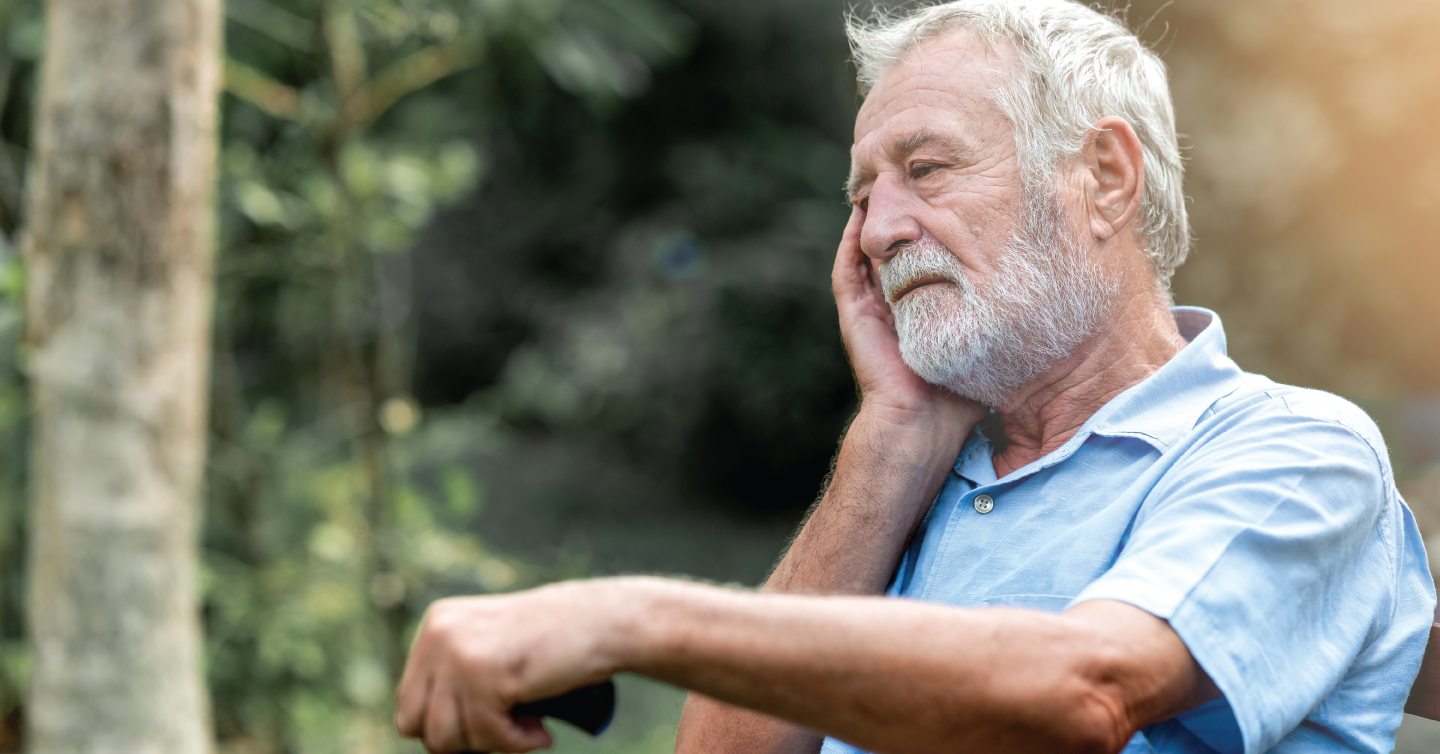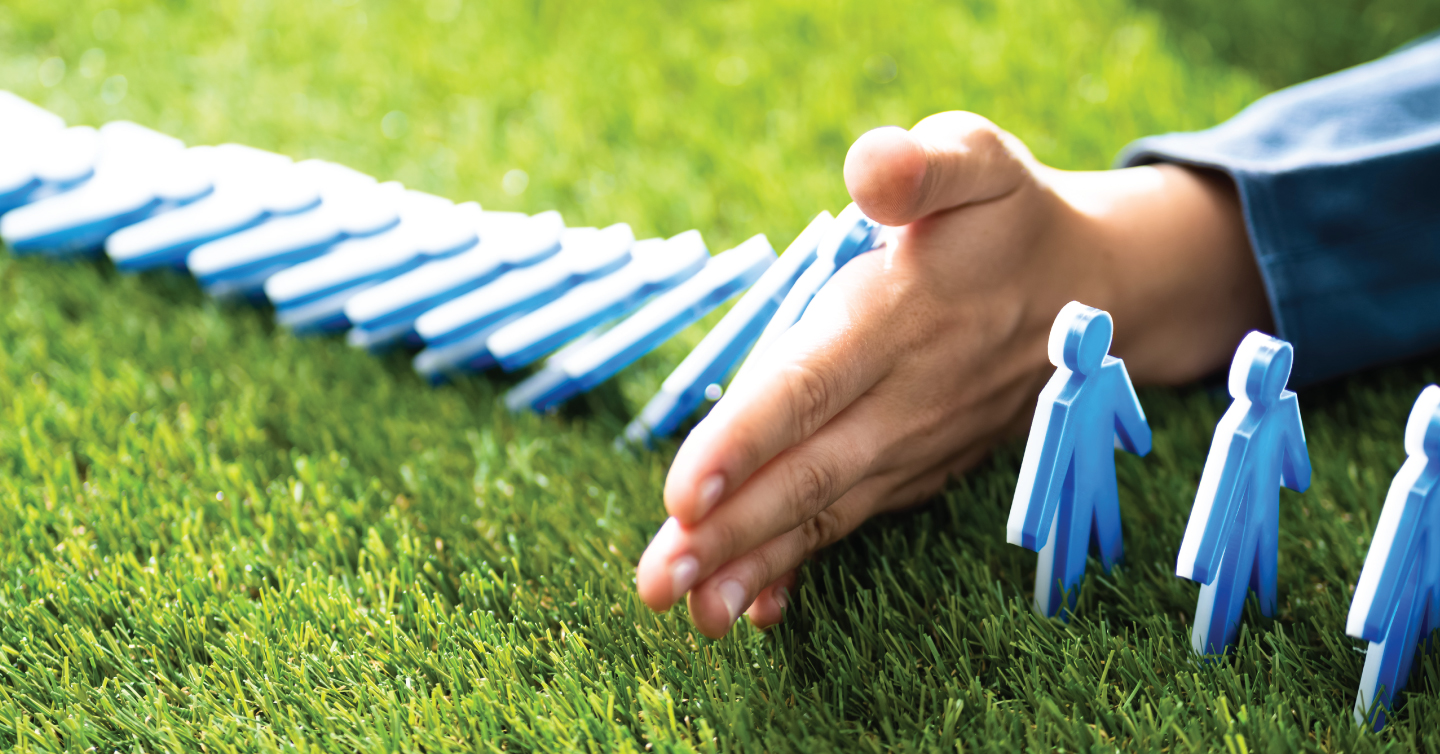A Seniors Guide to Fall Recovery

What to Do If You Fall Down
By Jennifer Footit-Tank RN, BSN, quality care coordinator at Network Health
Updated 1/30/2025 by Heidi G. BSN, RN, quality care coordinator at Network Health
Experiencing a fall can be life changing. It happens suddenly and without warning. You may have heard about how to prevent falls but what do you do if you experience one? As much as you may try to prevent a fall, accidents can still happen. If you are of a certain age, these falls can easily result in life changing injuries.
That is why, in addition to knowing how to prevent a fall, you should also know what to do if you ever actually fall down. We’ll guide you through what to do, what not to do and how to assess your living environment to make actionable improvements for future fall prevention.
You Fell Down. Now What?
If you find yourself on the ground after tripping or losing your balance, your first reaction may be to immediately attempt to get up. Experts recommend, however, that you stay where you are for a moment to recover from the shock. Moving too quickly or forcing movement may cause further injury.
Instead, stay calm and assess yourself for injuries. Determine what injuries might have been sustained and whether you can get up. The most common body parts to be injured are the knee, wrist, elbow, hip or shoulder. If you feel pain when you try to move or flex any of these areas, trying to get up could lead to further injury.
If you CAN get up
- Roll onto your side, bend the leg that is on top and lift yourself onto your elbows or hands. Do this slowly so that your body can adjust.
- Crawl toward a sturdy piece of furniture or stairs. Kneel and use both hands to support yourself as you grab the furniture or stair.
- Put your stronger leg in front and push up so you can stand and allow yourself to turn and sit down.
If you CANNOT get up
- Call for help. Shout, use your personal emergency response system or digital voice assistant or dial 911. Keep in mind that many modern phones can be activated with your voice. If set up, Apple iPhones can be activated by saying “Hey Siri” (pronounced See-Ree), while Android smartphones can be activated by saying “Okay Google.” Then ask the device to call 911.
iPhone - For setting up “Hey Siri,” click here.
Android phone – For setting up Google Assistant (“Okay Google”), click here.
- If this is not an option for you, slide or crawl to a phone or area where you can be heard calling for help.
- Make noise with any object that will attract attention.
- Get into a comfortable position and cover up to stay warm. Injuries can occur by lying on a cold floor.
- Try to move non-injured joints every half hour to encourage circulation and prevent stiffness, limiting further trauma.
Symptoms to Look for After a Fall
It’s true that not all falls will result in injury, however it’s possible you may not notice signs of injury until some time after the fall occurred. For this reason, it’s wise to visit with your personal doctor after a fall. They may wish to do a more thorough examination of your health to assess what may have caused the fall and search for injuries that may have gone unnoticed.
If you had previously determined that you were uninjured after a fall but later experience any of the below symptoms, you should get checked out by a doctor as soon as possible.
- Signs of a head injury, including vision changes, ringing in the ears, confusion or dizziness
- Any new pain, including stomach, joint and back pain
- Any limitations to your usual movement
How to Recover From a Fall
As mentioned, it is a good idea to visit your personal doctor following a fall. They will be able to diagnose injuries and help you form a recovery plan that aligns with those injuries. In addition, they can also help you understand why the fall happened and what you can do to prevent a reoccurrence. Fall prevention can greatly improve with simple changes, which start by asking the right questions.
Why did the fall happen?
- Were you wearing slippery shoes?
- Were you not using your cane or walker?
- Was the lighting poor?
- Was the walkway cluttered?
- Were you in a hurry to get to another area of the house?
- Were you trying to make it to the bathroom in time?
- Did you trip on a throw rug or cord on the floor?
Some causes are not environmental at all, but rather part of your personal health. Some illnesses or health issues, for instance, can cause a lack of balance. Certain medications can also reduce coordination as a side effect.
Discussing all these possibilities with your personal doctor will help you figure out what happened. You can also talk through your options for a safety plan so that you can get help quickly if you ever fall again.
What is your safety plan?
- Review your safety plan. Always carry a cell or portable phone with you. Consider wearing an emergency response system, installing a digital voice assistant, wearing a smart watch or carrying a whistle.
- Develop a plan with family members, friends or neighbors to ensure you have the support you need. This could be a daily phone call or visit, or having the shades pulled open or closed on a specific window to indicate you are okay.
Experiencing a fall can be shocking and unsettling. Taking steps toward prevention can help reduce your risk and rebuild your confidence. For further information on avoiding falls, refer to the Centers for Disease Control and Prevention website. For more information on how your Wisconsin health plan can help you stay safe from falling or other risks, household or otherwise, contact us today.



